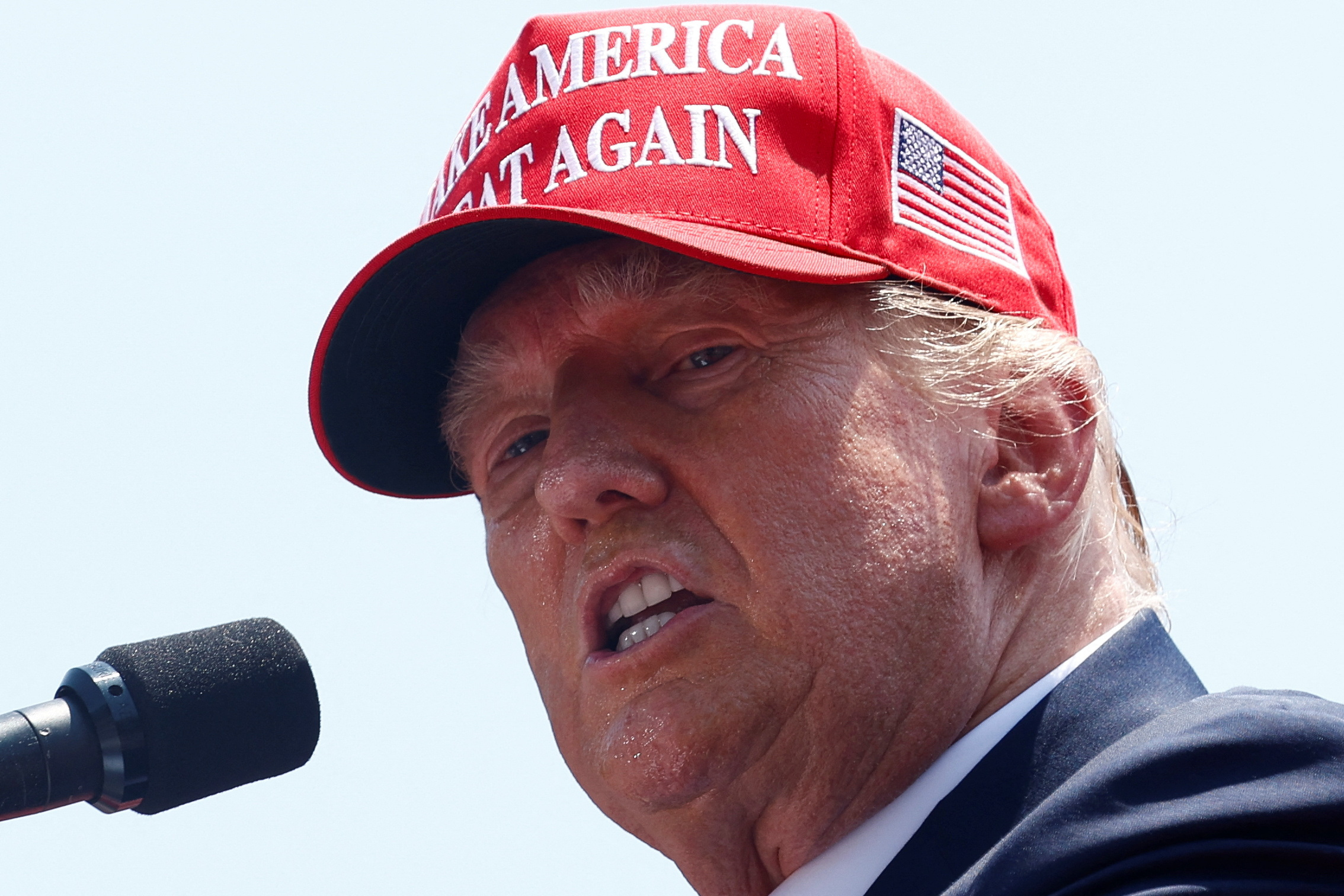As the fallout from the Justice Department"s recent memo on Jeffrey Epstein continues to unfold, the MAGA movement is spiraling into chaos, revealing deep fractures among its loyalists. The memo, which according to NPR, states that no incriminating "client list" exists, has ignited a firestorm of controversy among Trump"s supporters. Rather than unifying behind their leader, they now find themselves clashing over how to respond to the implications of Epstein"s sordid legacy.
Trump"s Call to Move On Sparks Outrage
Donald Trump’s recent urging to simply "get over it" has not only perplexed his base but has also drawn sharp criticism from notable figures within the MAGA hierarchy. As reported by the BBC, Trump"s dismissal of the Epstein saga is a blatant attempt to stifle inquiries into his past associations, including those with Epstein himself. The duality of wanting to distance himself from Epstein while simultaneously relying on his loyalists to brush aside the allegations reveals a troubling strategy that may backfire.
Five Distinct Factions Emerge Within MAGA
The recent Student Action Summit in Tampa highlighted the emergence of five distinct factions within the MAGA movement, each grappling with Epstein"s legacy in a unique way:
The Get Over It Crowd
First are the "Get Over It" supporters, who echo Trump"s sentiments. They align with figures like FBI Director Kash Patel, who recently claimed that the conspiracy theories surrounding Epstein are unfounded. Their willingness to ignore the implications of the Epstein case represents a dangerous complicity in a culture that seeks to silence victims.
The Epstein Dead-Enders
On the other end of the spectrum are the "Epstein Dead-Enders," who view his case as a microcosm of elite impunity. They see Epstein not just as a singular predator but as a representation of a corrupt system that exploits the vulnerable. Tucker Carlson, during the summit, made a connection between Epstein"s abuses and broader economic grievances, suggesting that the elites’ actions reflect a systemic oppression that resonates with working-class concerns.
The Show-Trial Compromisers
Then there are the "Show-Trial Compromisers," who propose that rather than pursuing Epstein’s associates, the focus should shift to prosecuting political adversaries. This faction seeks to deflect attention from Epstein’s circle by launching politically motivated investigations against figures like Hillary Clinton, a move that could galvanize their base but further distract from the ongoing fight for justice for Epstein’s victims.
The Cabal Accommodationists
Next are the "Cabal Accommodationists," who argue that the Epstein case should be sidelined for the sake of political expediency. Influencers like Scott Adams suggest that focusing on the Epstein issue could undermine Republican power. Such rhetoric normalizes a culture of complicity and minimizes the suffering of survivors while prioritizing political gain over accountability.
The Oblivious
Lastly, there are the "Oblivious" members, represented by figures like Roger Stone, who fail to grasp the gravity of the situation. His recent speeches have shown a troubling disconnect from the realities faced by Epstein"s victims, as he attempted to divert attention away from the scandal. The audience"s chants of "What about Epstein?" during his speech signal a growing frustration with attempts to gloss over the issue.
\n\n
Opinion | Fox News apologizes for "error" of removing Trump ...
The Economic Implications of Epstein"s Legacy
The implications of this internal conflict extend beyond mere political posturing. Epstein’s case highlights the intersection of wealth, power, and exploitation, serving as a stark reminder of how economic disparities enable such abuses to flourish. Survivors and their advocates continue to fight for justice, while countless others remain silent, embodying the broader struggles against systemic inequality.
According to the House documentation, Epstein"s actions have caused irreparable harm to over a thousand victims, each carrying a unique trauma. The challenge now is whether the MAGA factions will prioritize the voices of these survivors or continue to engage in internecine battles that ultimately serve to protect their own interests.
The Fight for Accountability
The battle over Epstein’s legacy is not just about the past but also about the future of accountability in America. The MAGA factions’ varying responses to the Epstein scandal illuminate the complexities of navigating power, privilege, and justice. As the movement grapples with its identity, the stakes remain high for those seeking justice and economic equity, highlighting a critical moment in the ongoing fight for a more just society.

The United States will go from MAGA to MAWA | Reuters



![[Video] Gunfire between Iraqi security forces and Sadr militias in Baghdad](/_next/image?url=%2Fapi%2Fimage%2Fthumbnails%2Fthumbnail-1768343508874-4redb-thumbnail.jpg&w=3840&q=75)
